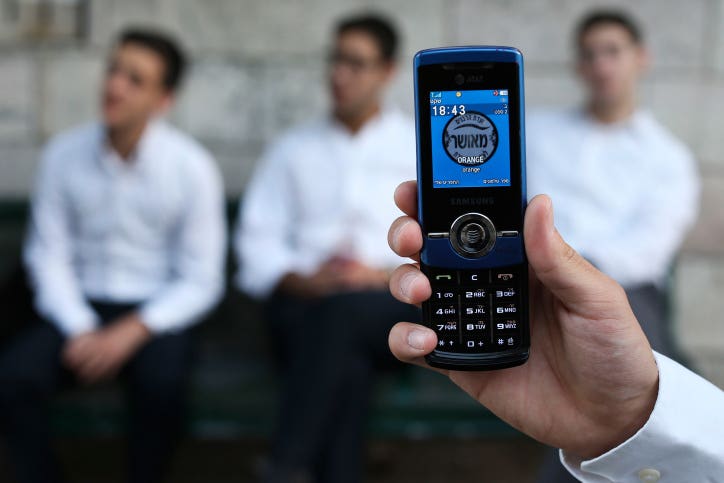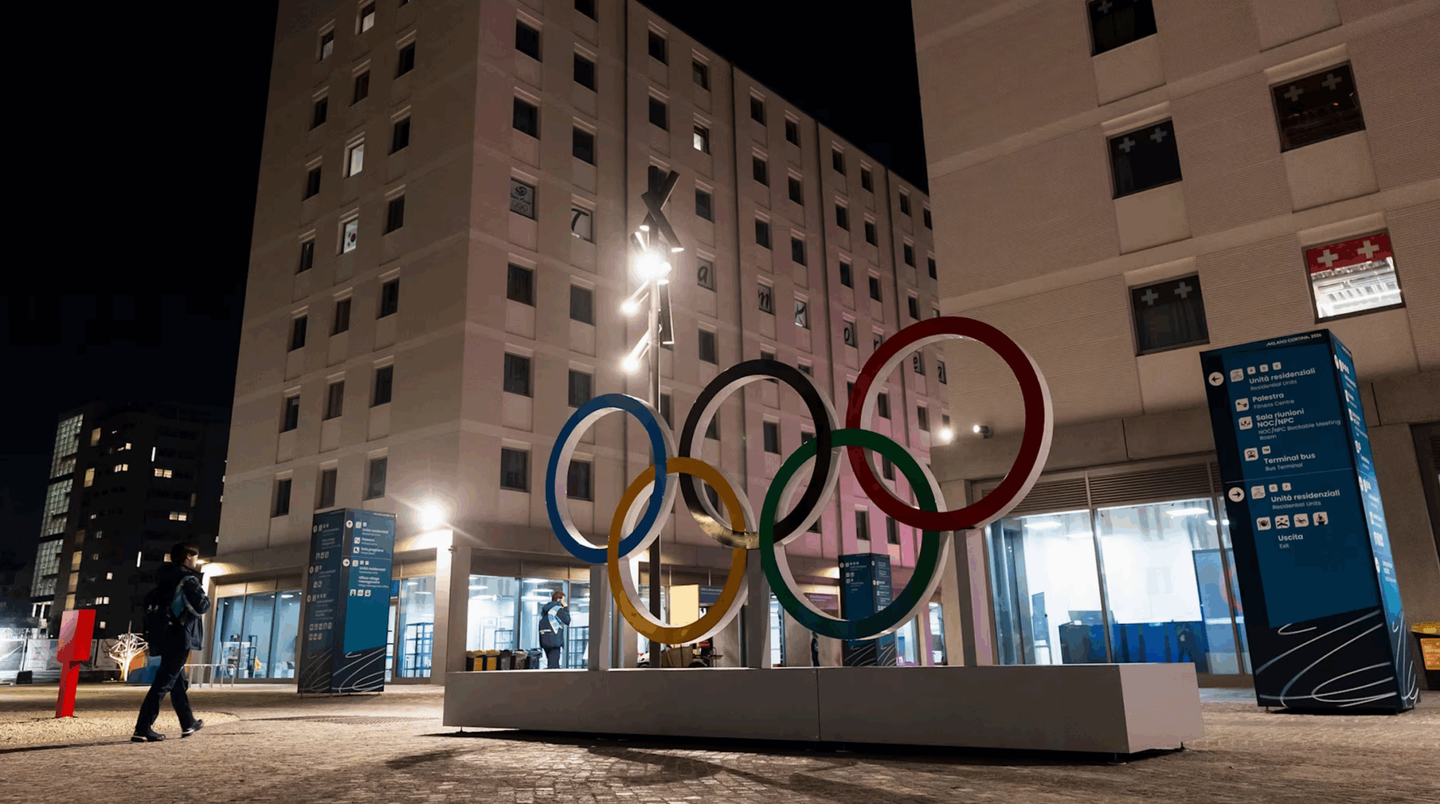What are ‘Kosher’ phones and what do new reforms in Israel mean to the industry?
Israel’s Ministry of Communications has announced a new plan to reform the country’s market for “kosher” mobile phone services.

[Feb 3, 2022: Joshua Shavit, The Brighter Side of News]
A kosher service is one used by ultra-orthodox people in Israel whereby they only use older model mobile phones that do not have texting abilities or any internet connections. (CREDIT: Nati Shohat/FLASH90)
What are Kosher phones?
20 years ago everyone in Israel used the same 2G Nokias, Sonys, etc. Approximately 15 years ago, with the latest developments in phone technology, namely SMS, cameras and Internet access, a bold decision was made by religious (and political) leaders to make a clear distinction between "Kosher"and "Non-Kosher" - as expressed in phones.
The decree included two parts:
Kosher phones must be from a certified source only (bought through Haredi channels from Haredi suppliers and dealers)
A phone must use a distinctive Kosher line starting with special digits (like 05272- or 05276- for Cellcom and 05484- for Partner).
A deal was made that Kosher SIM cards (with Kosher numbers) were locked and could only be used in Kosher phones.
While the first part was logical and supported, the second part became legally dubious when the Knesset approved two laws on cellphones that, strangely, didn't apply to Kosher phones:
All cellphones on the market must be sold unlocked allowing the clients free and painless switching between cell companies and
A person owns the number and keeps it when switching companies.
To enforce the order, all Haredi educational institutions from k-gardens to high Yeshivos were/are obligated to reject kids whose parents own non-Kosher phones (clearly seen by the phone numbers). Warning signs were put in all synagogues and around neighborhoods prohibiting entering with a smartphone.
Related News
The bright side of the deal was that Haredis became a major consumer group which allowed a steep reduction of the prices of Kosher cell plans (with no data of course), usually half of a regular plan (20NIS vs 50NIS). So within a year, all Haredi world switched to those Kosher phones and plans.
The problem began a year or two later when the same (poitical and business) leaders felt the urgent need to switch to smartphones. That was unbearable, no Rabbi would allow that publicly, so the era of double-life began - working Haredis bought two phones - one for work and one for their kid's school.
Initially, people were ashamed of being seen with a non-Kosher smartphone in public, but eventually, it became a norm, so another solution was needed and it came very fast as a couple of Haredi companies now offer special "Kosher" smartphones.
In terms of hardware, plain Android phones (usually Samsung or LG) with most of their internet functionality and Google services disabled (Google Play, new app installation, etc.) are sold for almost twice the base price.
A dedicated Kosher app store is maintained by the companies with a closed forum of people deciding which apps are available to download. The list of permitted apps differs between the companies, but usually includes the dialer, SMS, maps, Waze, WhatsApp, camera, banking, medicine, municipal services, e-siddurs and Jewish databases, tools and utils, etc. Many apps are banned just because of their use of [improper] ads. Internet browsers are disallowed.
Everyone can apply for additional apps and usually, it's approved within weeks.
Currently, there are 5 main providers of Kosher smartphones plus Internet Rimon that offers Kosher VPN service for any smartphone (targeting mainly the Kipot Srugot community).
With the exception of Kosher wallpaper, the new Kosher smartphones are indistinguishable from their "not Kosher" siblings. As a result of numerous problems with Internet access, many users simply buy a regular unlocked Android phone (one that is offered as Kosher too), apply a Kosher wallpaper, use underground services for engraving a Kosher stamp on its back and use Rimon VPN.
As for the 2G phones, they have for the most part, vanished from the market.
"Kosher" phones use managed VPNs to stream all internet communication through its services on top of a regular non-Kosher cellular line (with an unKosher number). That is offered as a monthly service for a separate price (usually 50-60NIS a month on top of the regular 20-50NIS plan for 30-100GB of data).
New smartphone reforms anounced this week
Israel’s Ministry of Communications has announced a new plan to reform the country’s market for “kosher” mobile phone services by allowing more competition.
The government says that opening the market to competition will dismantle the dominant monopoly in the kosher cellular market, which includes about half a million subscribers, facilitate the transition between companies, and lower prices for consumers.
Minister of Communications Yoaz Handel maintains that the cellular training reform will allow full number mobility among kosher line service subscribers, without exception, and will allow competition on kosher lines which should lead to lower prices and a higher quality of the devices marketed.
In addition, a kosher line subscriber will have the ability to switch between a kosher line service plan and another plan in the same cellular company, and vice versa, while keeping their personal phone number.
Minister Handel stated, “The current situation has shown that when one mechanism controls the market, problematic phenomena arise. We have no intention of interfering in filtering the content that the public is interested in, but a problematic situation has arisen that they are bound to one and only body that sets prices and violates consumer rights.”
Note: Materials provided above by The Brighter Side of News. Content may be edited for style and length.
Like these kind of feel good stories? Get the Brighter Side of News' newsletter.
Tags: #New_Innovations, #Science, #Kosher, #Israel, #Phones, #Smartphones, #Technology, #Religion, #The_Brighter_Side_of_News



